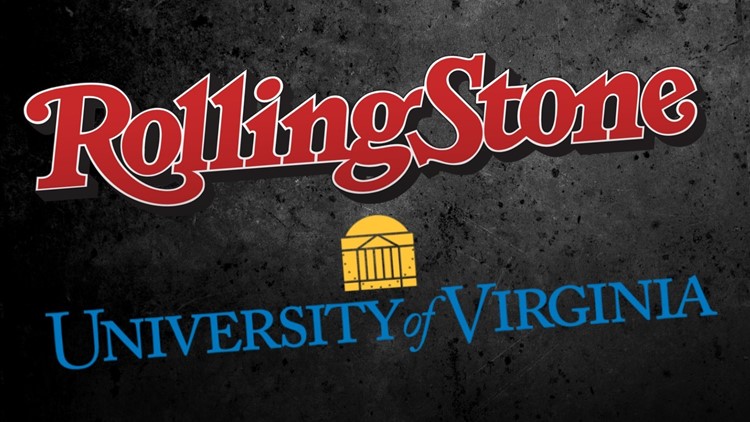CHARLOTTESVILLE, Va. — A jury found Rolling Stone magazine liable for defamation on Friday over its explosive and later discredited story about a gang rape at a University of Virginia fraternity house.
The magazine’s publisher and the reporter, Sabrina Rubin Erdely, were also found liable.
School administrator Nicole Eramo said that the story, “A Rape on Campus,” portrayed her as callous and insensitive to the plight of an alleged rape victim. She is seeking $7.5 million. Damages will be determined later.
In the story, a woman identified only as Jackie claimed that she had been beaten and raped by seven men at the Phi Kappa Psi house. Eramo said that she was “the chief villain of the story,” portrayed as discouraging Jackie from going to the police.
The 9,000-word article was met with outrage nationwide when it was published in November 2014, and the school suspended all fraternities.
But Jackie’s claims were quickly questioned. Charlottesville police found no evidence that the rape happened. And journalists and readers were stunned to learn that Erdely never spoke to the men identified as Jackie’s attackers.
The jury, eight women and two men, found Erdely liable for parts of the original story and for interviews she gave about it.
It found that the magazine and publisher, Wenner Media, were liable for defamation for republishing the story several weeks later with an editor’s note acknowledging doubts about Jackie’s account.
The magazine retracted the article after a review by the Columbia Journalism School concluded that it was a “story of journalistic failure.” The review also said the article risked spreading the idea that women invent rape allegations.
In a statement after the verdict, Rolling Stone acknowledged “journalistic mistakes” in an attempt to “present this complicated issue from the perspective of a survivor.”
“It is our deep hope that our failings do not deflect from the pervasive issues discussed in the piece, and that reporting on sexual assault cases ultimately results in campus policies that better protect our students,” the magazine said.



